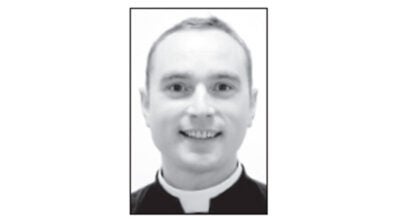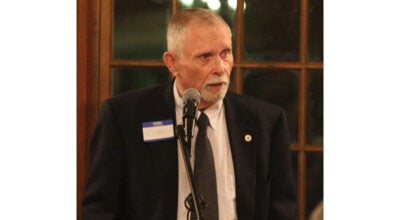What is justice?
Published 1:44 pm Saturday, October 3, 2015
by Andrew Book
At 12:21 a.m. on Wednesday, Sept. 30, Kelly Gissendaner was killed by my home state, Georgia. Her execution was carried out nearly 20 years after she conspired to murder her husband. After years of appeals, motions, trials and life lived behind bars, our justice system finally decided that justice was best served through the injection of lethal drugs into Kelly’s body.
The death penalty is a hot subject for many people in this country, and you can learn a lot about how someone feels simply by listening to the words they use to describe the event. Is it “state-sponsored murder” or is it “the death penalty?” We want to be a society that pursues justice, but finding justice in the face of crime is not a simple issue.
Rewind almost exactly five years to the Greensville Correctional Facility in Jarratt. It was a night not too different from the one on which Kelly was executed in Georgia, but the name and the situation was different. Her name was Teresa Lewis, and she was also a convicted murderer. Like Kelly, Teresa’s case had some question marks. The questions around Kelly’s case are rooted in comparatively light sentence (life with the chance of parole) received by the actual murderer in return for his testifying against Kelly (who had conspired to murder). In Teresa’s case, the questions were about her mental status — many people thought (and still think!) that the state of Virginia executed a mentally handicapped woman. In both cases appeals were denied and the state took on the role of executioner.
The other difference between Teresa’s execution and Kelly’s is that I was present. I had been invited by Virginians for Alternatives to the Death Penalty (VADP) to join a vigil outside the prison. I accepted the invitation unsure of what I would encounter. The sense of foreboding was palpable as we gathered with friends and family. We prayed and we sang and we cried until the prison gates opened and a convoy of vans bolted out of the prison like they had been shot from a rifle. Those vans, we were told, communicated to us that the deed had been done and the officials in charge of the execution were leaving the grounds. As I watched those vans speed into the night, I thought they looked more like a criminal fleeing the scene of a crime than an official who has helped serve justice, I wondered — not for the first time — “Is this justice?”
This week I discovered that those witnessing the execution do experience what I was envisioning: a simple desire to get away from what they had just been a part of. Jeff Hullinger — anchor for the “11 Alive” news I grew up watching — was present at Kelly’s execution and he tweeted (@11hullinger) “when it was over, I wanted to sprint to the prison van amidst the razor wire. Take me somewhere to collect myself and pray.” He also said he would never do it again.
There is something about the desire to run from what we have done that should lead us to question whether the death penalty is a good idea. The more I have looked into the reality of the death penalty in this country, the more I have come to see that there is more reason to run than just an emotional response to watching another person lose their life. We have studied whether the death penalty deters crime, only to discover that it does not. We have talked to the families of victims, only to find that the decades long process leading to an execution does not give them the “closure” we want for them. We have looked at the monetary costs and discovered that an execution costs many times the amount of a lifelong incarceration. We have examined the racial and economic divide between white and black and rich and poor and discovered that being black or poor makes someone more likely to be sentenced to death. We have also realized the obvious — that execution is not reversible in those cases when we discover the wrong person has been convicted. In fact, I have yet to see a study that is able to show any meaningful reason to continue to execute criminals.
As a Christian I have a deep commitment to the potential that all people can be redeemed and find hope and meaning in Christ as Kelly Gissendaner did. From that perspective, the prospect of ending a life disturbs me. Beyond that, however, I cannot see any reason to support the death penalty beyond a simple desire for revenge — and revenge isn’t justice.
So, what is justice? Justice is about doing what we can to support and restore victims and victims’ families. Justice is about rehabilitation for criminals and creating a safe society, but justice is not revenge. Justice is not the death penalty. I hope the day will come soon when Virginia will set aside our need for revenge and replace it with a passion for justice, and I hope you will be a part of that change.
ANDREW BOOK is the pastor of Courtland United Methodist Church. He can be contacted at 653-2240 or andrew@courtlandumcva.org.





